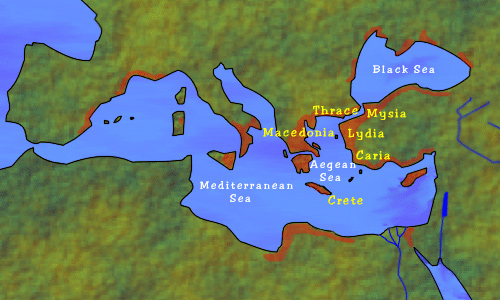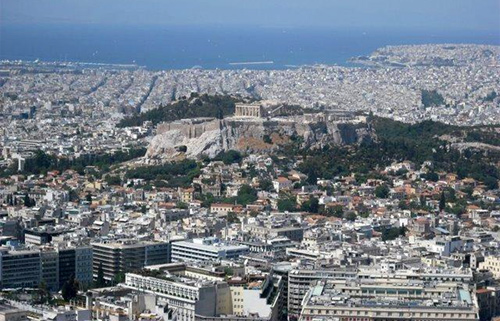
Source: Ancient Greece c.550, Think Quest.
Let’s take a look at natural features and how they affect urbanization. Urbanization refers to the growth of cities. Natural features such as rivers and coastlines are extremely important to urbanization because they provide water to drink, food such as fish, and transportation (by using boats). The ability to trade also influences how cities will flourish. Thus, many older cities were founded along rivers or coastal areas before the invention of cars and highways.
Compare the map of Ancient Greece to the modern-day photo of Greece.
Natural feature-rivers, coastlines and other waterways: Ancient Greece c.550

Source: Ancient Greece c.550, Think Quest.
As you can see from the map above the areas that were settled (in this case by Greece) from 800-500 B.C. were primarily along the coast. 550 BC was during the Archaic Period of Greek History. During this period of time the Greeks began exploration for agricultural land. Sea trade increased substantially throughout the Mediterranean, and colonization of new regions began. It is estimated that around this time period, there were nearly 700 different city states of Greek population.
Modern-day Athens, Greece

Source: The Acropolis, Central Intelligence Agency.
In your notes respond to this question: How have the natural and man-made features affected the urbanization of Greece?